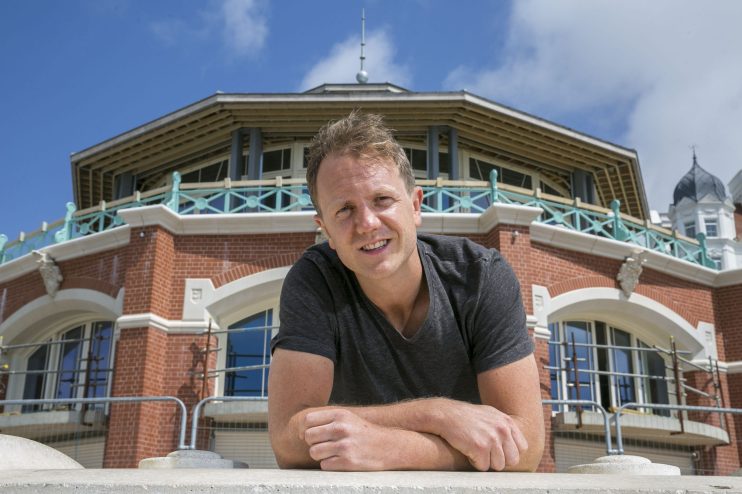Opening up: How one entrepreneur kept his food hall dream alive

The pandemic has been tough on everybody – but launching a food hall business in the middle of it is really going above and beyond. Sessions Market chief Dan Warne tells us how he kept going, and plans for the future
It was early March and just like so many businesses, the news of the virus sweeping through Europe was far from encouraging.
At Sessions Market Ltd., we had won a bid to operate a large food hall on the Brighton seafront in a Victorian building called Shelter Hall Raw and had both the financing and the time to deliver something exciting, but quite suddenly and dramatically that looked highly unlikely. A very real question of whether we could finance, build and operate this business, and under what conditions, presented itself abruptly.
Read more: Where to grab a drink this weekend as the capital reopens
It was clear we needed to think quickly (and frankly speculatively), about what was to come and how we could exist in that new world. What we’ll deliver and how we’ll deliver it may be indicative of a ‘new normal’ for the industry.
Firstly, I must stress that we were lucky to have a forward-thinking local authority in Brighton, who happened to be our landlord. Landlords serving eviction notices, ahead of the forfeiture moratorium was senseless commercially, let alone ethically.
Fortunately for us, Brighton and Hove City Council were not only willing to adapt our lease terms to make this workable, but also worked closely and rapidly with us in adapting our design and build. For context, we took a multi-million-pound build and condensed it into a 6-week programme, with a third of the budget, to deliver a ‘raw’ concept. This basic, less capital-intensive design will become more commonplace in this climate, with the focus diverted to the quality and provenance of the end product, which is no bad thing.
This was a landlord thinking about long term value creation, not just by supporting a tenant they believe in, but by thinking holistically about the ancillary regenerative value that concepts like ours create.
Clearly a landlord that doubles as a local authority is afforded a holistic view of value creation over a wider area, but there is nonetheless much to be heralded in their proactivity and shared sense of urgency. For context, we are now creating a space from scratch to be designed for this period, with our designers somehow fusing safety and art, making protective screens part of the aesthetic. Our landlord not only backed us, but were intimately involved in the process.
Secondly, our whole concept is an egalitarian one; we create a platform and invite the best local businesses to operate their brands in our space. We champion them at the early points in their journey. We give reverence to the history of a community and try to be sympathetic in our design and product curation. Ultimately, we have always wanted to create a space that isn’t just inspired by the local community, but is genuinely built by it through employing 70 locals and working with over 20 local businesses across the project.
While this was important pre Covid-19, it has become fundamental now. The collective ambition from the local Brighton community has made this viable. Everyone involved in this project is not merely contracted to it, but feels endemic to it, and the level of productivity that comes from that is staggering. This crisis has very clearly brought out the best in local community spirit and this will propel those businesses that can help instil a sense of purpose and place back on the high street. Mass market homogenised brands still have their place, but I might argue that’s increasingly in utilitarian consumption online.
Finally, everything at Shelter Hall Raw will be digitised, and Covid-19 will accelerate the digitisation of bricks and mortar businesses. Pay-at-table technology will become the norm, and broader, deeper virtual offerings will become commonplace. This is an obvious point, but less obvious is what that means for physical retail and hospitality.
We will move into a period where digital ordering creates far richer data, allowing businesses to algorithmically map trends and adapt their concepts accordingly, across multiple channels. Those businesses that can most malleably respond to the data will be most successful. At Sessions Market, we have a marketplace model, which we’ll keep dynamic and flexible, allowing us to change concepts rapidly according to what the data tells us, much like Netflix knows what you want before you do. This model has always been the future, and Covid-19 has merely accelerated that.